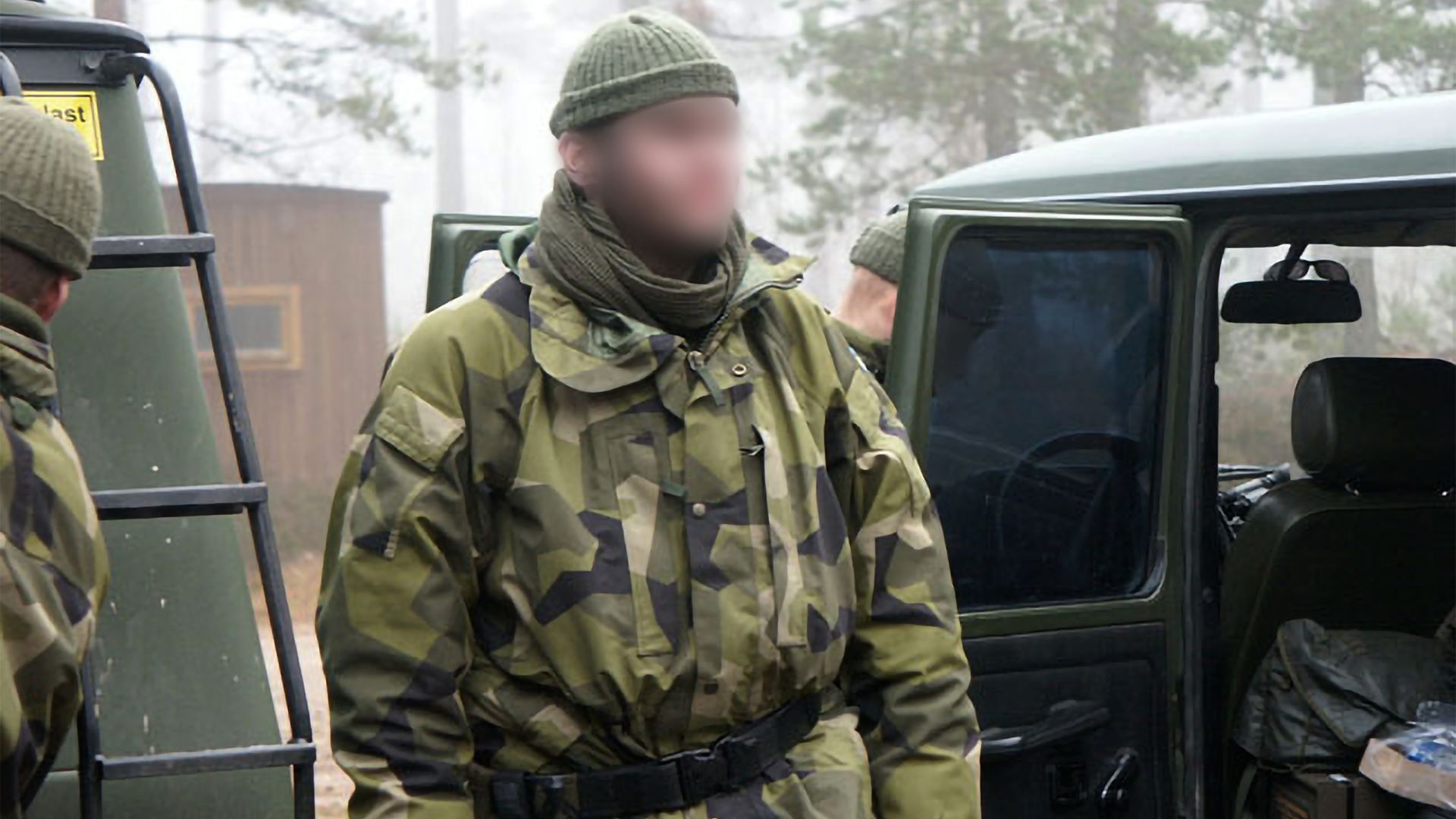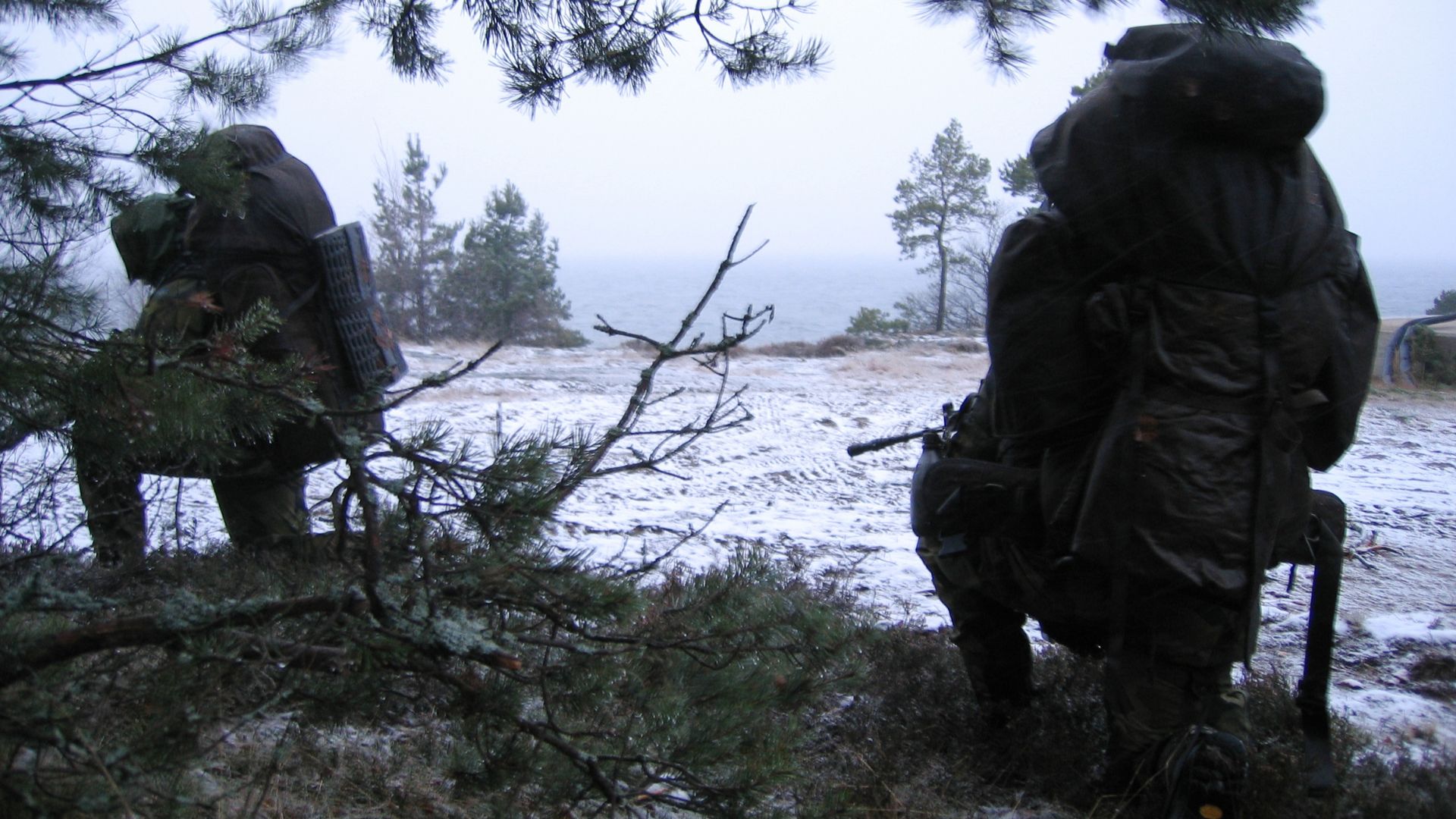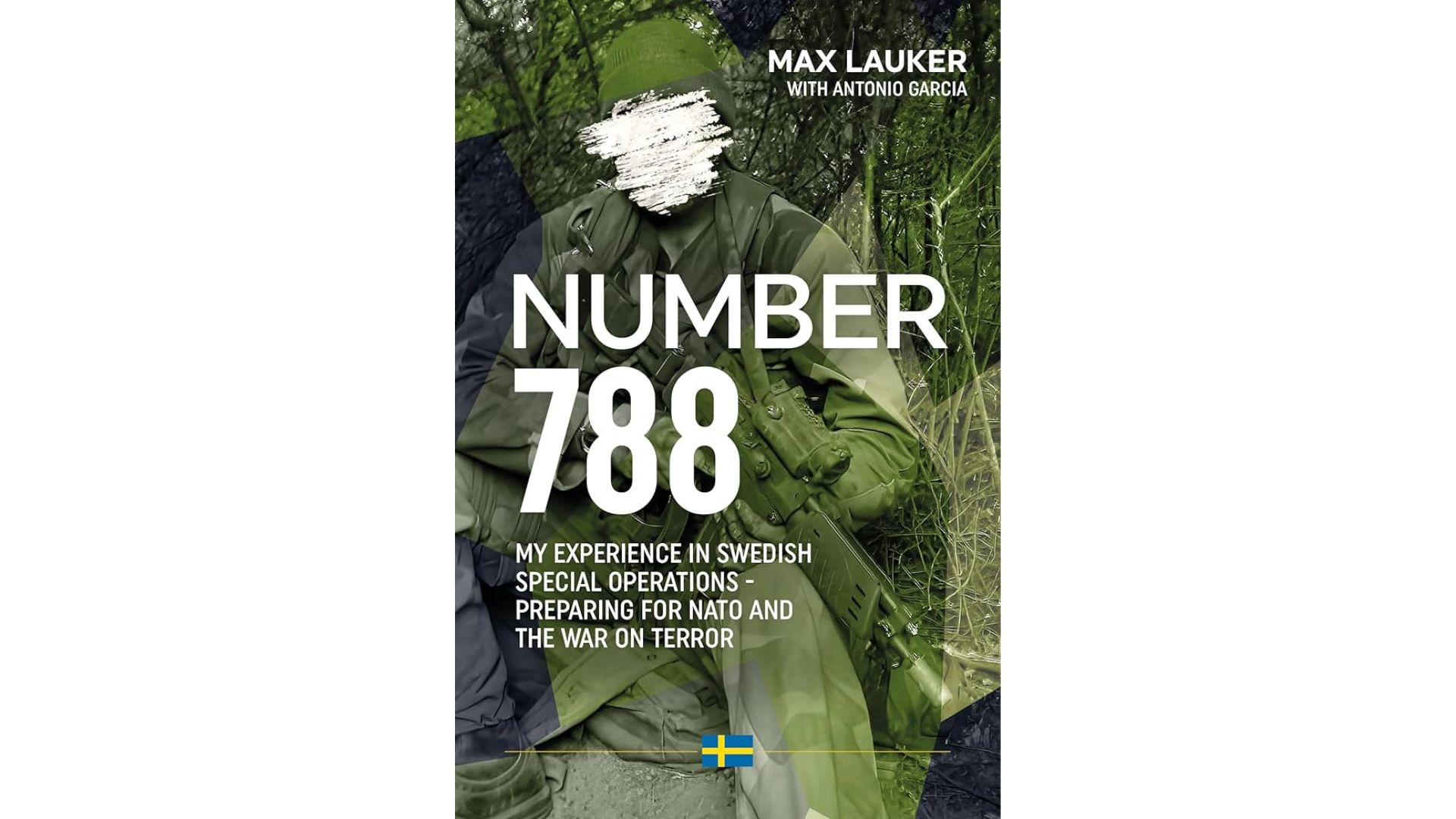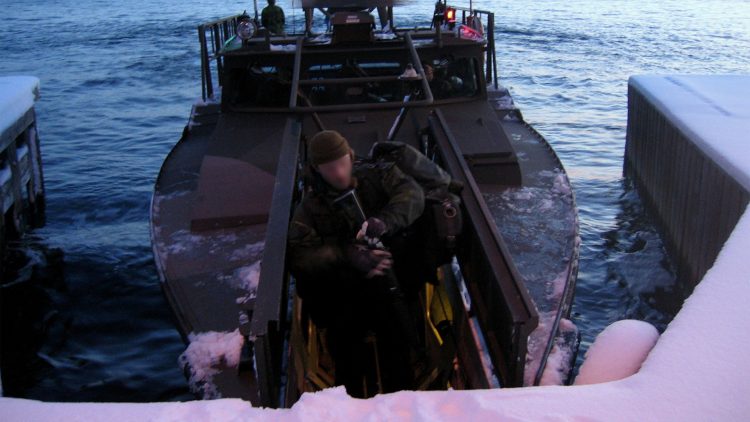SOFREP recently caught up with Max Lauker for an insightful chat about his time in the Swedish Armed Forces and his life since. Max’s military career took him from the suburbs of Stockholm to the elite ranks of the Special Purpose Units in the Norrlands Dragoon Regiment based in Arvidsjaur. He later served in Stockholm and Karlsborg, working within the worlds of special operations and intelligence.
Throughout his service, Max was deployed in diverse locales such as Kosovo, Iraq, Afghanistan, Africa, and countries of the former Eastern Bloc, leading numerous covert operations until his departure in 2018. Now, he’s shifted gears to the private security sector, focusing on intelligence.
In our interview, Max opened up about his life before the military and his extraordinary journey from a city kid in Stockholm to serving with the Arctic Rangers and then moving into specialized intelligence roles.
We hope you enjoy it!
Early Roots
Max Lauker grew up in a split family, with a father from the remote north and a mother from the agricultural heartlands just north of Stockholm.
In his teenage years, Max left the familiar urban backdrop for the rugged, expansive settings of northern Sweden, moving over 300 miles away to complete his last three years of Gymnasium (upper secondary) education in a boarding school. It was there that he really connected with nature.
While he wasn’t exactly a thrill-seeker, Max found solace and excitement in hiking, scuba diving, and engaging in various water sports, hinting at his future aspirations toward a maritime career.
At 16, while still in school, Max really got into hitting the gym, and this newfound dedication marked the beginning of a physical and mental preparation that would unknowingly serve him well in the future.
Max, who aspired to be a captain of his own ship, saw the impending compulsory military service as a mere stepping stone—a societal obligation—that appeared undemanding due to the Swedish military’s underfunding at the time.
A Pivotal Turn: Choosing the Path of an Arctic Ranger
Things changed dramatically shortly after Max turned eighteen.
Maybe it was his father’s tough-as-nails attitude or the thrill of competing at the selection center, but instead of joining the Navy, Max was drawn to the grueling life of an Arctic Ranger.
“[W]hen getting there, something happened inside of me; it might have been my father’s words that stuck with me: ‘Being a ranger is the only option for a real man‘ or just the spirit of competition,” Max Lauker recounted.
Said and done, Max walked out of there, having been assigned to the Arctic Ranger Regiment for 15 months beginning in January 2002.
Max explained that his choice to join the military didn’t cause much of a stir among family and friends, as military service is a standard expectation in Sweden. “It’s not a big deal in Sweden, and there was not much reaction from everyone when I decided to stay,” he said.
However, Max noted that a few of his friends thought that pursuing university would have been a better option. “But here we are,” he added, indicating his contentment with the path he took.

Max’s Path from Ranger Training to Special Forces
During his 15-month stint as an Arctic Ranger, Max discovered his knack for military life. While he didn’t view it as his ultimate calling, his natural aptitude was undeniable.
“I didn’t feel that it was my life’s calling to be in the military, but I had a natural talent for it,” Max stated.
As his compulsory service neared its end, while many were preparing to resume civilian life, Max set his sights on officer’s school.
Despite the stiff competition, he excelled, securing the top spot for his regiment.
However, just as he was gearing up for the officers’ program, it was abruptly canceled due to budget cuts, leaving Max adrift.
“I felt a bit lost after I got the call…” he recalled.
The disappointment was short-lived, though.
Soon after, his former commanding officer reached out with an intriguing opportunity. They were assembling a new unit—a hybrid between Special Forces (SF) and Ranger units. This was a common strategy among elite regiments at the time, aimed at shielding themselves from the widespread disbandment affecting military units, Max explained.
Max spent the next few years in this hybrid unit, which eventually merged under the SF umbrella. This experience paved the way for his deeper involvement in Special Purpose units and, subsequently, intelligence roles.
It was an era of experimentation in the Swedish military as it sought to establish a consistent structure for SF and support units.
For someone as “hungry” as Max, it was an ideal time to begin a military career, with plenty of exciting opportunities and a flexible schedule.
“Today, it’s a far more vertical organization,” Max said. “It’s important to know what you are aiming for straight away. On the other hand, the options are much more mapped out, and it’s easier to make a path to follow.”
Reflecting on his training, Max values the fundamental lessons from his Arctic Ranger days the most.
The training was stripped of glamour—no explosions or high-tech gear—focusing purely on survival in extreme conditions.
“It is all about learning how to survive in an extreme environment, change your socks, keep dry, keep your equipment in order… or the climate will kill you before the enemy does,” he recounted.

As he highlighted, the harsh climate was as much a threat as any enemy, and the skills and instincts Max honed then have saved him countless times throughout his career.
“The instincts that I matured during that time have saved me more times than I can count.”
Max’s military career follows a consistent theme, beginning with Long Range Reconnaissance Patrol (LRRP) duties and seamlessly transitioning into intelligence roles. This “natural progression” allowed him to improve with each assignment.
However, continuing in this line of work presented significant challenges.
The job’s demands, combined with the modest benefits and salary, required numerous compromises.
Max recognizes that military service is more than a job; it is a way of life that requires sacrifice and resilience.
“It’s a lifestyle, not just a job, and you will make MANY compromises if you want to keep doing it,” he noted.
A More In-Depth Look at Max’s Military Life
SOFREP digs deeper into Max’s military career, exploring his rise from Arctic Ranger to a key figure in military intelligence. We asked him a series of probing questions to gain a better understanding of his experiences and the decisions that shaped his path. Here’s what Max had to say:
SOFREP: What was your most challenging experience during your military career? How did you overcome it?
Max Lauker: To leave the service. I [had been] trying to do it for years. I wanted to try to do something more civilian, to see some new sights. But I never managed to take the plunge. And when I did, I ended up doing the same but for another agency. Funny how that works. I wouldn’t say one becomes fully institutionalized, but it is a lifestyle that is hard to change and even harder to try to replace out in the civilian world (pro tip: you can’t). If you compare everything to your military experience, it will never suffice. You have to see things for what they are and not what they were.
Since I haven’t overcome the challenge yet, I’ll get back to you when I know how it’s done.
SOFREP: Can you share a particularly memorable mission or operation? What did you learn from it?
Max Lauker: One of my early missions was in Latin America. It was an ad hoc mission, and I was alone, paving the way for my team to arrive. I might have taken the “learn the ropes” order a bit too literally, and one day, I was sitting in the back of a truck with five people I had just met, and we were making our way toward our exit point after a snatch and grab.
The lesson there was to trust your instincts and not put all eggs in one basket, and great risk comes with great reward… if you make it. Also, don’t fall in love on a mission that never turns out pretty.
SOFREP: How did the Swedish military culture differ from what you expected?
Max Lauker: It was exactly as I expected on the surface. But one becomes surprised at first how relaxed it becomes the deeper you get. When you first get in, you think it will stay the same forever.
SOFREP: What was the physical and mental preparation like for special operations?
Max Lauker: It’s a mental game. After selection, I didn’t really think about the physical part; it comes as a side effect of the job, more or less. But mental preparation is everything. That is something you get into after some time.
In the beginning, you have no idea how to quickly switch between being on and off; you are always on. If one doesn’t get that under control, eventually, it will break you. It is all about finding those micro-moments of winding down, even if it is just for a minute or two.
It might be you taking three deep breaths behind a wall in Afghanistan in between firefights or at home, just trying to live in the moment and clear your mind from all the accumulated stress you have built up at work. You have to be able to flick that switch.
SOFREP: How has your military experience shaped your worldview and personal values?
Max Lauker: It has made my views a bit grimmer; it’s like visiting a food factory or a slaughterhouse, and it is dirtier than you imagine behind the scenes. On the other hand, it will give you a slightly better grasp of how the world actually works, and you will be able to see things from a unique perspective.
SOFREP: Do you have any advice for aspiring SOF candidates or young people considering a military career?
Max Lauker: People often focus a bit too much on the physical part. It is an important part but less important than you think. The most important part is that you want it for yourself. Not for the cool factor, not to impress, and not even that much for the challenge. It has to be a calling. If it isn’t, it will grind you down.
Work on your social skills; you will need them to be a team player, and if you want to do anything outside of the standard SF box, that is what counts. Learn a language that will give you an edge and open up multiple opportunities. Don’t forget to relax! You will think better, perform better, and feel better. Remember: Special forces selections are about finding people [who] can grow and develop with training and experience, people with a natural talent. They are not looking for a ready-made product.

The Story Behind Number 788 and Mark Lauker’s Authorial Debut
Max now works in private security and has written an autobiographical book titled Number 788. In it, he recounted his experiences in the Swedish Armed Forces, combining “elements of a classic Western first-person military action book but with a Swedish style.”
Regarding his book and writing process, Max shared the following insights with us:
SOFREP: What inspired you to write your book, “Number 788”?
Max Lauker: I had never thought about writing a book as I have never been a keen writer. But a friend [who] works in the South African National Defence Force, that I [met] 15 or 16 years ago, was nagging me once a year for ten years to write something, and in 2022, I said okay. I didn’t really know all the ins and outs of publishing and book writing. But he hooked me up with a former colleague of his, Tony (Garcia). And he agreed to be a co-writer and an editor for the book.
One week after [Tony and I had our] first call, we had a book contract. All thanks to Tony, [who] had already published three books at that point.
SOFPEP: What part of the writing process did you find most enjoyable or challenging?
Max Lauker: I didn’t really know what to expect when I started writing. I was in Eastern Europe at the time and had some downtime in between two “missions,” so I just sat down and started writing. Three months later, I had a 170k-word draft. The writing came [easily] enough, and I enjoyed [putting] my experiences on paper. Once the tap was opened, it kind of just flowed out of me.
After that, Tony and I started to work [through] the script and polish it. Which is a different part of the process but also a part I enjoyed immensely.
What I found most challenging was what came after that: the waiting. Waiting for publishers, proofs, [and] dates. It’s all a part of the game, but it took longer than the actual writing and editing process.
SOFREP: If you could highlight one specific chapter or scene that captures the essence of your book, what would it be?
Max Lauker: There are many, of course, but I would say one of the parts that I still remember as yesterday is Chapter 16, the last chapter when we are on our way to do an [infill] in a border area.
“The heli shook violently as it followed the tiny river’s contours. I looked around, only serious painted faces as far as the eye could see. It felt different this time. For the first time, we were going to hunt for a real army unit. It was a test – not just regular paramilitary or terrorist-affiliated organizations. We were going to hunt for the 63rd Parachute Brigade of the Serbian Special Forces. It was more war than anyone could have hoped for.”
SOFREP: What do you hope readers will take away from your book?
Max Lauker: I hope they will appreciate the authenticity; it’s not just guns blazing and bagging bad guys. There is a lot of waiting, keeping your head in order, fears, and worries. I hope it will provide a good mix for the readers and [give] them a feeling of military life. It is a coming-of-age story that spans over five years, so it grows on you.
SOFREP: What are your future plans, both professionally and personally?
Max Lauker: Professionally, I am still doing similar work, something that has grown exponentially since 2022. But, I am working on a sequel to Number 788, which I hope to complete in the next year, and I will co-author a management book looking at military and civilian leadership with Tony, which we are looking to publish in 2027. I hope to be able to write more and work a bit less.
On the personal front, I am trying to free up some time for sailing. The Navy dream still runs strong, and maybe [I can] take up Rad’s offer of doing some gold panning.
SOFREP: Do you have any upcoming projects or books in the works that your readers should look forward to?
Max Lauker: Tony and I are doing our monthly “column,” the War Diaries and we will keep that up. I am currently translating Kostiantyn Koshelenkos’s book “Management in Times of War” into Swedish. Then it’s all about the sequel and co-authoring with Tony on the Management book.

Make sure to check out Max Lauker’s ‘Number 788: My experiences in Swedish Special Operations – preparing for NATO and the War on Terror‘ co-authored by Antonio Garcia.
You can also find Max and his other projects with Garcia at undergroundstrategy.com.
—
Disclaimer: SOFREP utilizes AI for image generation and article research. Occasionally, it’s like handing a chimpanzee the keys to your liquor cabinet. It’s not always perfect and if a mistake is made, we own up to it full stop. In a world where information comes at us in tidal waves, it is an important tool that helps us sift through the brass for live rounds.










COMMENTS